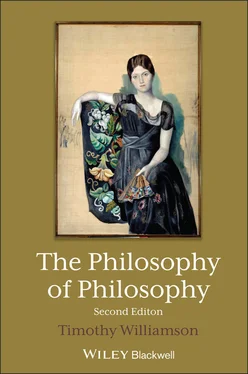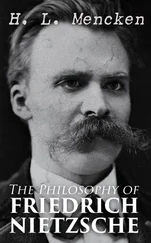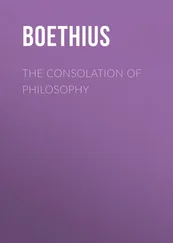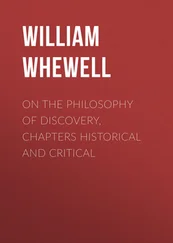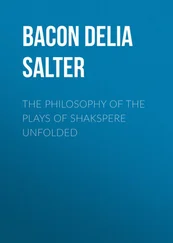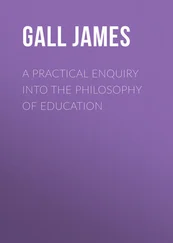Admittedly, not all modal-analytic true sentences express necessarily true propositions. Examples of the contingent a priori such as “It is raining if and only if it is actually raining” are modal-analytic, since the truth of “It is raining” as uttered in a given context is necessarily equivalent to the truth of “It is actually raining” as uttered in that context, because “actually” refers rigidly to the world of the context, but the biconditional does not express a necessary truth, since the weather could have been relevantly different, in which case it would have been not raining if and only if it is actually raining. Thus modal-analyticity violates Kripke”s constraint that analyticity implies necessity; in this respect it may diverge from the traditional conception. Conversely, not all sentences that express necessarily true propositions are modal-analytic: consider examples of the necessary a posteriori such as “I am not Tony Blair.” Nevertheless, such examples seem marginal to the envisaged conception of core philosophical truths, most of which will both express necessarily true propositions and be modal-analytic.
A core of philosophical truths may indeed be modal-analytic. Some philosophers seek to articulate necessary truths without essential reliance on indexicals; if they succeed, the sentences they produce are modal-analytic. Even if contextualists are right, and key philosophical terms such as “know” shift their reference across contexts, the relevant sentences may still both express necessarily true propositions and be modal-analytic: consider “Whatever is known to be the case is the case.” The answers to philosophical questions of the forms “Is it possible that P?” and “Is it necessary that P?” will themselves express necessary truths, given the principle of the widely accepted modal logic S5 that the possible is non-contingently possible and the necessary non-contingently necessary; if the answers can be phrased in non-indexical terms, they will then be modal-analytic. But outside the envisaged core many philosophically relevant truths will not be modal-analytic, as the examples near the start of the chapter show.
Unfortunately, even for modal-analytic philosophical truths, classifying them as modal-analytic does not unlock their epistemology, any more than classifying a truth as necessary explains how we can know it. Of course, if a sentence is modal-analytic, then one is safe from error in uttering it with its given meaning. In that sense, one”s utterance is reliable. But such reliability falls well short of what knowledge requires, since otherwise any true mathematical assertion would count as an expression of knowledge, no matter how fallacious the “proof” on which it was based. “Vixens are female foxes” is utterly misleading as a paradigm for the epistemology of modal-analytic truths in general. To say that s is a modal-analytic truth whose constituent words and grammar we understand does very little way to explain how we can know or justifi ably believe s . 13In particular, it does not imply that the mere linguistic understanding of s , which every competent speaker possesses, provides any insight into the truth of s , or constitutes more than the minimal starting-point for inquiry it does for ordinary synthetic truths.
Issues related to those just raised for modal-analyticity arise for what is sometimes called “Frege-analyticity.” 14A sentence is Frege-analytic just in case it is synonymous with a logical truth. For example, “All furze is furze” is a logical truth, roughly speaking because everything of the form “All F is F” is true. “All furze is gorse” is not a logical truth, because not everything of the form “All F is G” is true (“All fungus is grease” is false). However, “All furze is gorse” is Fregeanalytic, because it is synonymous with the logical truth “All furze is furze,” since “furze” is synonymous with “gorse.” In “Two Dogmas,” Quine admits the notion of logical truth, and therefore allows that if “synonymous” were legitimate, so would be “analytic” in the sense of Frege-analyticity. By present standards, the notion of Frege-analyticity is quite intelligible. But what are its consequences?
Trivially, every logical truth is Frege-analytic, because it is synonymous with itself. Clearly, this alone does nothing to show that logical truths are somehow insubstantial in any metaphysical, epistemologically explanatory sense (see the end of Section 1). For instance, it is compatible with the hypothesis that there are truths of second-order logic which characterize the necessary structure of reality in profound ways and can never be known by any mind. A fortiori , nothing has been done to show that Frege-analytic truths are insubstantial. 15
To make the point vivid, call a sentence “Einstein-analytic” just in case it is synonymous with a truth once uttered by Einstein. Trivially, every truth once uttered by Einstein is Einstein-analytic. That does nothing to show that truths once uttered by Einstein are in any sense insubstantial; a fortiori , nothing has been done to show that Einstein-analytic truths are somehow insubstantial. Of course, if we had independent reason to regard all logical truths as somehow insubstantial, that would presumably give us reason to regard all Frege-analytic truths as insubstantial in some related way, but the mere definition of “Frege-analytic” provides no such reason. Quine devoted some of his most powerful early work to arguing that logical truths are not analytic in a less trivial sense (Quine 1936).
To explain why “All furze is furze” is a logical truth while “All furze is gorse” is not, use was made of Tarski’s standard model-theoretic account of logical consequence as truth-preservation under all interpretations which preserve logical form, and in particular of logical truth as truth under all such interpretations (Tarski 1983b). It lends no support to any conception of logical truths as somehow insubstantial. The truth of a sentence under all interpretations which preserve its logical form in no way make its truth under its intended interpretation insubstantial. 16To use a style of argument from Section 2, consider this simple logical truth (with “if” read as the material conditional):
(7) If Barbara is a barrister, Barbara is a barrister
Its compositional semantic evaluation proceeds in parallel to that for the non-logical analytic truth (3) and the synthetic truth (4); each is true because it is a material conditional with a true antecedent and a true consequent. All three are true in the same way. From the perspective of compositional semantics, logical truths are true in the same way as other truths.
In one good sense, sentences of the form “P if and only if actually P” are logical truths, and therefore Frege-analytic, because true in every model (Davies and Humberstone 1980, Kaplan 1989). Nevertheless, they can express contingent truths on the same reading; it is not necessary for me to be my actual height. Although we could add a modal qualification to the definition of logical truth in order to exclude such examples, by requiring logical truths to be true at every world in every model, this mixing together of the modal dimension with the world dimension is bad taxonomy; perspicuous basic notions keep such different dimensions separate. Thus Frege-analyticity, like modal-analyticity, violates Kripke’s constraint that analyticity implies necessity. In this respect Frege-analyticity too may diverge from the traditional conception.
The mathematical rigor, elegance, and fertility of model-theoretic definitions of logical consequence depend on their freedom from modal and epistemological accretions. As a result, such definitions provide no automatic guarantee that logical truths express necessary or a priori propositions. This is no criticism. As a theoretical discipline, logic only recently attained maturity. Tarski’s model-theoretic notion of logical consequence has turned out to be a key theoretical notion. To reject it on the basis of preconceived extraneous constraints would subvert the autonomy of logic as a discipline. Pretheoretic conceptions of logical consequence are in any case too confused to provide much guidance on subtle issues. 17Still, those who do have a non-standard account of logical truth can feed it into the definition of “Frege-analytic” if they like.
Читать дальше
